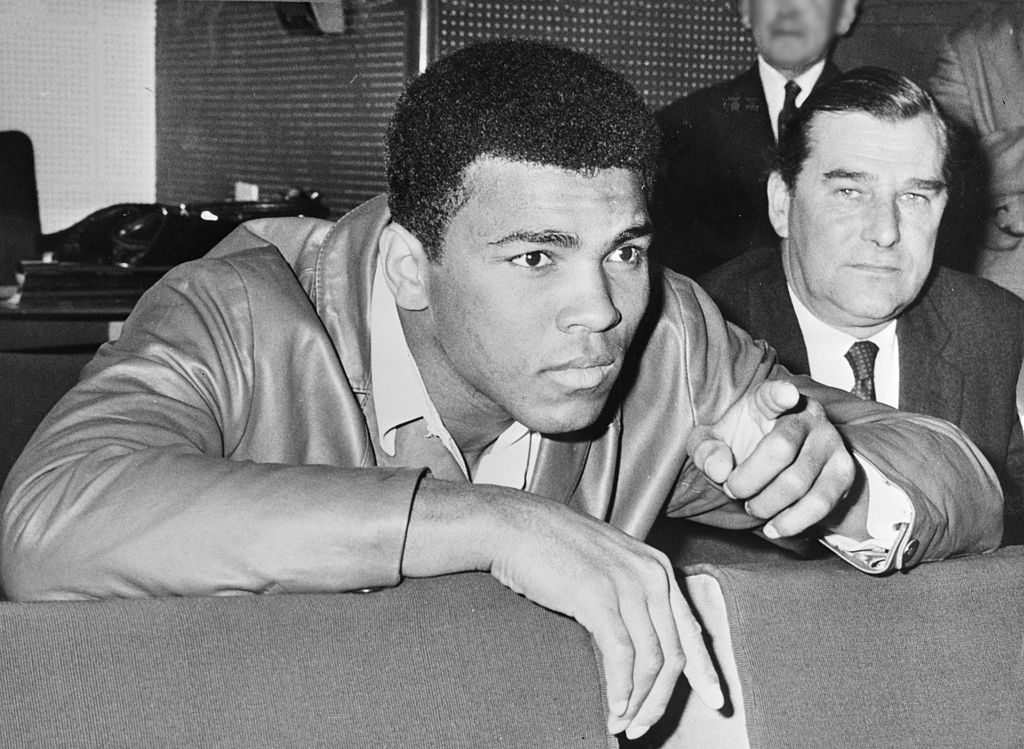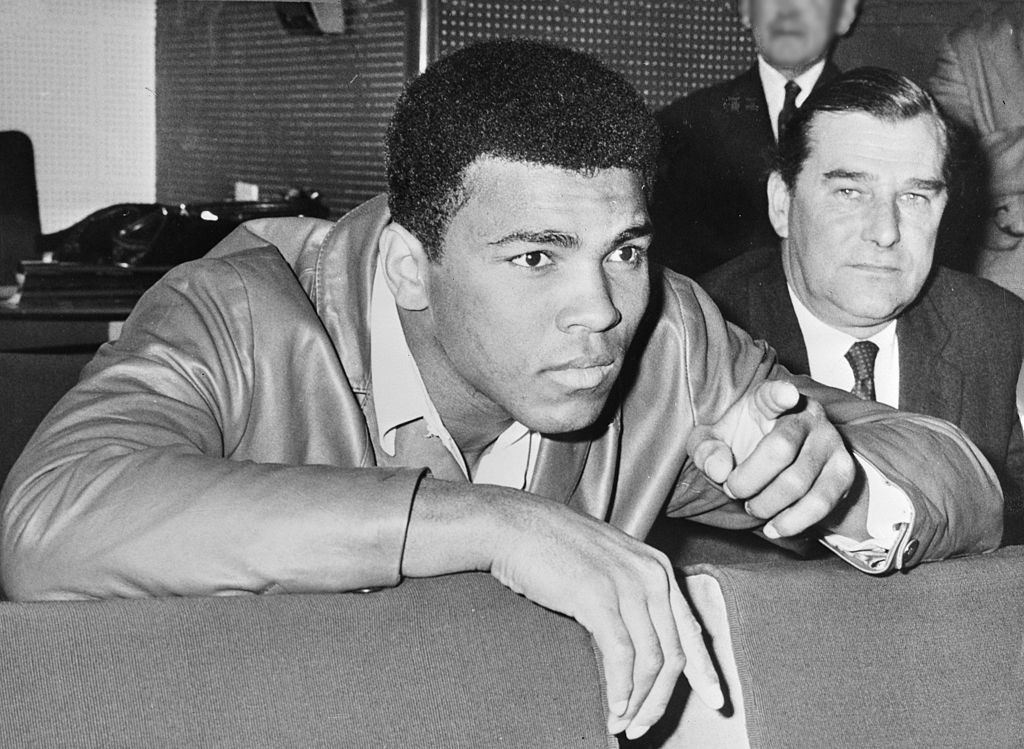Muhammad Ali was a towering presence in sports and society. As a boxer he was “The Greatest,” and was equally well known as a social crusader and activist. The world loved Ali, and he crossed over into pop culture a number of times.
The Greatest
More than two decades before Will Smith was nominated for an Academy Award for his portrayal of Muhammad Ali in the 2001 film Ali, there was the 1977 film The Greatest. It depicted Ali’s life from his gold-medal-winning turn in the 1960 Olympics to his 1974 heavyweight title fight against George Foreman—the “Rumble in the Jungle.” Ali was such a charismatic figure that only one man at the time was capable of portraying him onscreen: Ali himself. The Greatest also introduced the song “The Greatest Love of All.” Later a huge hit for Whitney Houston, it was first performed here—explicitly about Ali—by George Benson.
I Am the Greatest
Also in 1977, NBC aired a Saturday morning cartoon in which Ali voiced an animated version of himself. It’s the first cartoon ever based around a real-life pro athlete. It’s also the first cartoon where a main character is a public relations agent. Ali’s real PR man, Frank Bannister, provided the voice of the animated Frank Bannister. The cartoon itself was standard cheesy cartoon fare. Episode titles of the 13-episode series include “The Werewolf of Devil’s Creek,” “The Great Alligator,” and “Terror in the Deep.”
Ali and His Gang Vs. Mr. Tooth Decay
For this bizarre 1976 storybook record, Ali recruited famous friends like Frank Sinatra and Howard Cosell. The goal: to get kids to eat less sugar, and to brush their teeth. The consequences of not doing so were anthropomorphized on the record as a Russian-accented monster named Mr. Tooth Decay (and his sidekick “Sugar Cuba”). It was nominated for a Grammy for Children’s Comedy Record and led to a sequel in which Ali and President Jimmy Carter urged kids to not do drugs.










